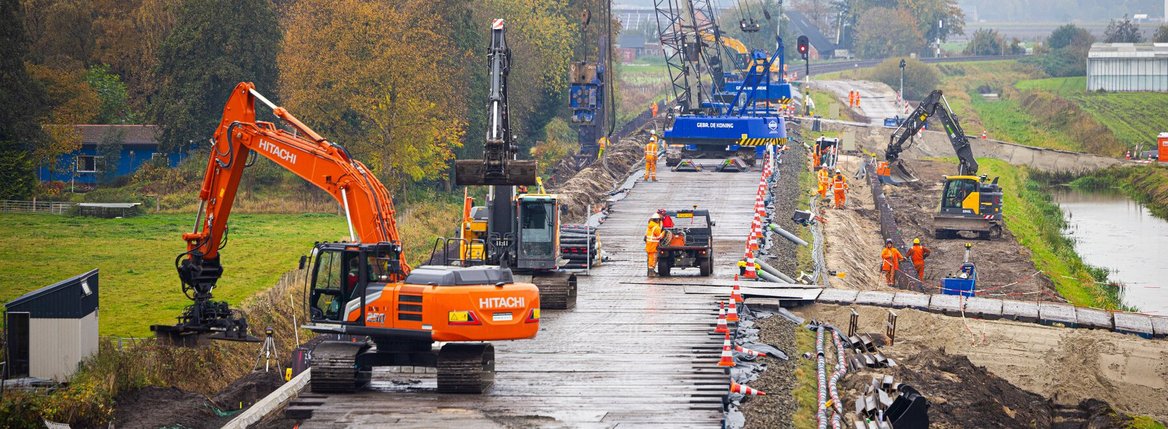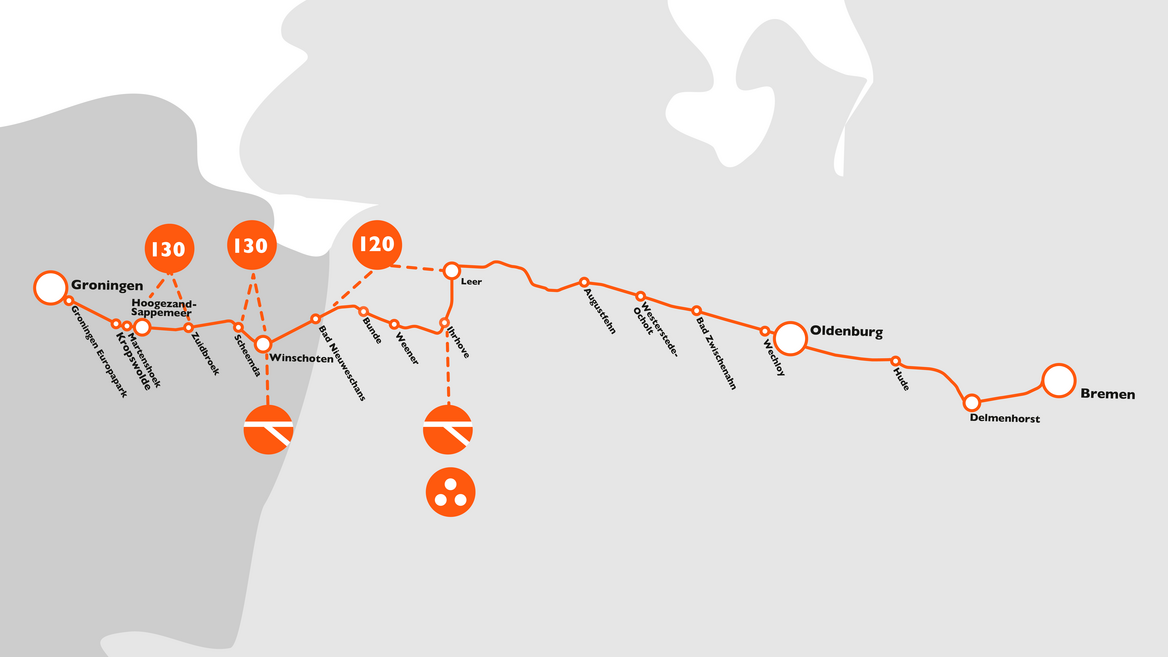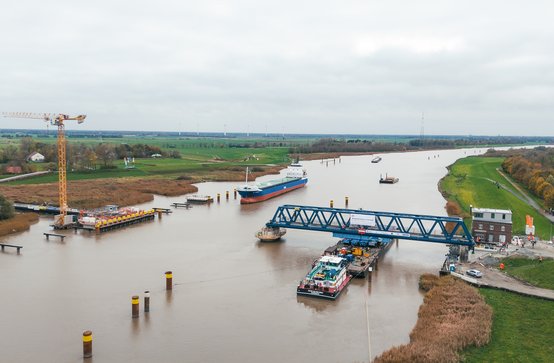
We will ensure that the journey time between Groningen and Bremen is reduced from 2 hours and 43 minutes to 2 hours and 26 minutes and finally to 2 hours and 11 minutes by 2025 in order to offer a sustainable and equivalent alternative to the car. We are doing this in several steps.
ProRail is working on the tracks between Hoogezand and Zuidbroek, Scheemda and Winschoten as well as Bad Nieuweschans and the border with Germany until 2025, so that passenger trains will soon be able to travel at higher speeds. Among other things, we are working on the tracks, points and signalling systems.

Map showing speed increases, modifications train stations/switches and renewals signals on the route.
In Germany, Deutsche Bahn is working on the track from the border with the Netherlands to Leer until 2025. Including the new Friesenbrücke over the Ems. Find out more about the work in Germany on the Deutsche Bahn website.
An important bridge for the Wunderline is the Friesenbrücke over the Ems near Weener (Germany). In 2015, a freighter sailed into the bridge and the bridge has been broken since then. The new bridge will be completed by mid-2025. Cyclists and pedestrians may be able to use the bridge as early as spring 2025. The new Friesenbrücke will be the largest railway swing bridge in Western Europe.

A new milestone has been reached in the construction of the new Friesenbrücke over the Ems: Deutsche Bahn successfully installed the rotating section of the bridge. This rotating bridge section, along with the technical installations, forms the heart of the new Friesenbrücke.
By mid-2025, the first construction phase will be completed. This will reduce the travel time Groningen - Bremen by train from 2 hours and 43 minutes to 2 hours and 26 minutes. Even after 2025, we are committed to further improving the train connection between Groningen and Bremen, with the aim of reducing journey times. This is a joint agreement between the province of Groningen, Land Lower Saxony and Bremen, made in 2019.
Since then, however, there have been many changes. The costs of infrastructure projects in both the Netherlands and Germany have risen sharply. Moreover, the Wunderline, like other rail projects, has faced unforeseen problems, such as weak ground that required additional reinforcements. This remains a major concern beyond 2025.
To enable the second construction phase of the Wunderline, originally planned until 2030, the province of Groningen, Land Lower Saxony and Bremen are studying alternatives. The province of Groningen attaches great importance to realising a direct train connection (without changing trains in Leer).
In the coming years, these partners will work together to implement rail improvements between Groningen and Bremen, with other rail projects and initiatives in the northern Netherlands and north-western Germany also benefiting from these developments.